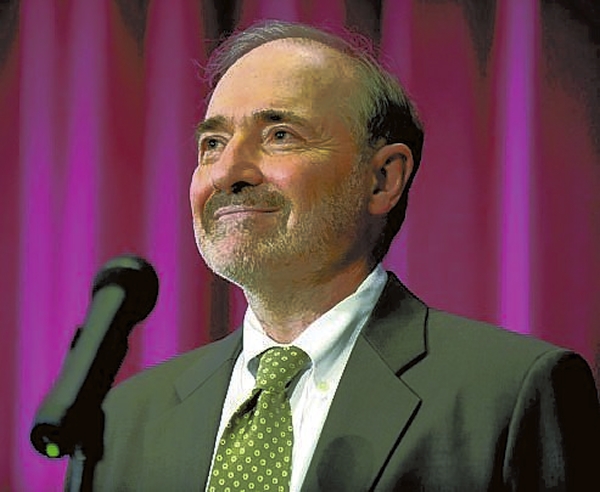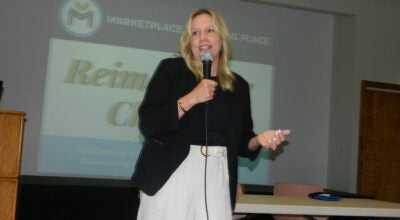HSF speaker will address rise, fall of N.C. textile industry
Published 12:00 am Tuesday, January 31, 2017

- Historian Peter Coclanis was the guest speaker Feb. 7 for Historic Salisbury Foundation's 'Spinning History: The Rise and Fall of North Carolina's Textiles Industry.' Photo courtesy of Historic Salisbury Foundation
SALISBURY — Dr. Peter Coclanis, a noted historian, will speak on the history of the textile industry in North Carolina at 5:30 p.m. Feb. 7 at Salisbury Station (Salisbury Depot).
Coclanis, an expert in economic and business history, will explore the impact of the textiles sector on North Carolina, Rowan County and Salisbury. His talk is titled “Spinning History: The Rise and Fall of North Carolina’s Textiles Industry.”
The lecture is open to the public and sponsored by Historic Salisbury Foundation. The foundation requests that those planning to attend make reservations on or before Friday by calling 704-636-0103 or emailing office@historicsalisbury.org.
Cotton mills and the surrounding housing, often built by the mill owners for their workers, shaped the fabric of small towns and cities throughout the Piedmont region of North Carolina.
The textile manufacturing business played a major role in the economy and employed thousands of people. The fall of the textiles industry in the Piedmont left many N.C. towns and cities — Salisbury and Rowan County included — struggling economically.
The textile industry is intertwined with Salisbury and Rowan County history. In 1861, the Confederate government purchased the former Chambers Factory for $15,000 to use as barracks for the planned Salisbury Prison.
The Chambers Factory building dominated the Salisbury Prison as can be seen in C.A. Kraus’s well-known “bird’s eye view” drawing (lithograph) of the prison, as it appeared in 1864. The Chambers Factory was built as a cotton mill in 1839, closed a few years later, and reopened as a steam-powered mill in 1847 . The mill closed in the mid-1850s and stood largely empty before it became the barracks for the Salisbury Prison.
Today, Rowan County is littered with derelict sites that were once textile and apparel businesses. They include the former Cone Mills building on South Railroad Street and mounds of debris remaining from the demolition of the Kesler Mill/Cannon Plant No. 7 on North Boundary Street.
In one case, real estate developers put forth a grand dream that never materialized — the High Rock Raceway development, to be built on the site of the former N.C. Finishing Co. plant bordering the Yadkin River north of Spencer.
Virtually all of the sites have environmental problems of varying degrees. The area’s economy have never fully recovered from the loss of textile manufacturers.
Coclanis’ early research focused on the economy of the American South. He is the Alfred R. Newsome Distinguished Professor of History at the University of North Carolina at Chapel Hill.
A past chairman of the department of history, Coclanis currently is director of the Global Research Institute at UNC-Chapel Hill, where he works on global agricultural markets. He is married to Salisbury native Deborah Busby.


